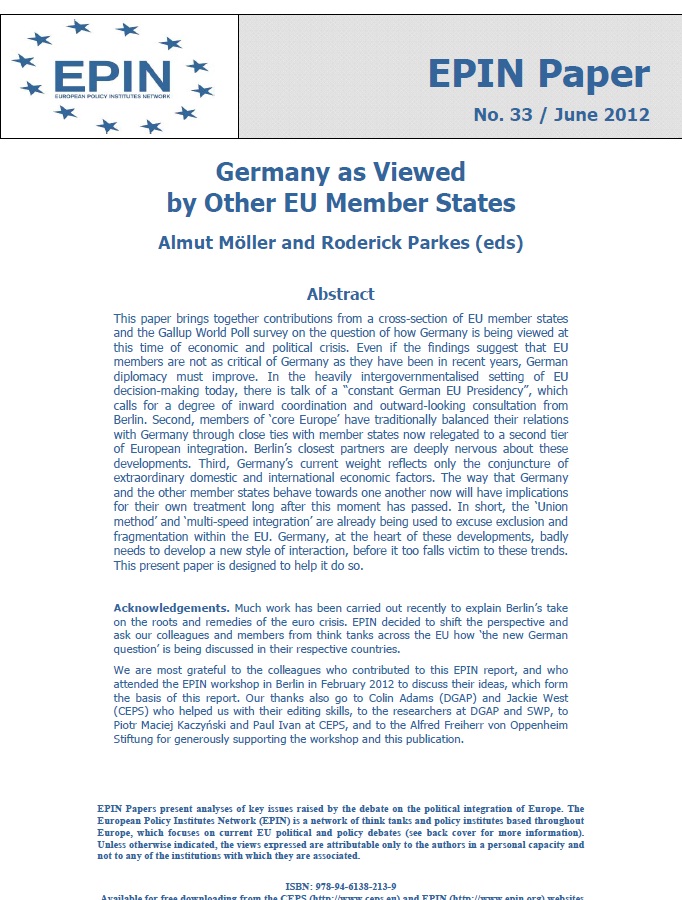France's Partner on a Pedestal: A View Driven by Pragmatism and Envy

This paper brings together contributions from a cross-section of EU member states and the Gallup World Poll survey on the question of how Germany is being viewed at this time of economic and political crisis.
Even if the findings suggest that EU members are not as critical of Germany as they have been in recent years, German diplomacy must improve. In the heavily intergovernmentalised setting of EU decision-making today, there is talk of a “constant German EU Presidency” which calls for a degree of inward coordination and outward-looking consultation from Berlin. Second, members of ‘core Europe" have traditionally balanced their relations with Germany through close ties with member states now relegated to a second tier of European integration. Berlin's closest partners are deeply nervous about these developments. Third, Germany's current weight reflects only the conjuncture of extraordinary domestic and international economic factors. The way that Germany and the other member states behave towards one another now will have implications for their own treatment long after this moment has passed. In short, the ‘Union method" and ‘multi-speed integration" are already being used to excuse exclusion and fragmentation within the EU. Germany, at the heart of these developments, badly needs to develop a new style of interaction before it too falls victim to these trends. This present paper is designed to help it do so.

Available in:
Regions and themes
ISBN / ISSN
Share
Download the full analysis
This page contains only a summary of our work. If you would like to have access to all the information from our research on the subject, you can download the full version in PDF format.
France's Partner on a Pedestal: A View Driven by Pragmatism and Envy
Related centers and programs
Discover our other research centers and programsFind out more
Discover all our analysesBundeswehr: From Zeitenwende (historic turning point) to Epochenbruch (epochal shift)
The Zeitenwende (historic turning point) announced by Olaf Scholz on February 27, 2022, is shifting into high gear. Financially supported by the March 2025 reform of Germany’s “debt break” and backed by a broad political and societal consensus to strengthen and modernize the Bundeswehr, Germany's military capabilities are set to rapidly increase over the coming years. Expected to assume a central role in the defense of the European continent in the context of changing transatlantic relations, Berlin’s military-political position on the continent is being radically transformed.
Merz’ European Policy-making: The End of the ‘German Vote’?
Friedrich Merz’s European ambition is to turn Germany, long seen as hesitant into a leading actor within the European Union (EU). To that end, he has pledged to end the “German vote,” a phenomenon that epitomizes the paradox of a country both indispensable and frequently absent from European decision-making.

Securing critical raw material (CRM) value chains – a prerequisite for Europe’s technological resilience
At the heart of economic security, technological resilience is a backbone of the European Union’s (EU) competitiveness. The EU’s energy and digital transitions depend on critical raw materials (CRM).

Reconciling competitiveness and demographic change: a Franco-German imperative
France and Germany are facing parallel demographic shifts that could reshape the future of their economies and their social models. These shifts reflect broader European patterns but are magnified by the central role both nations play in EU governance and competitiveness.








